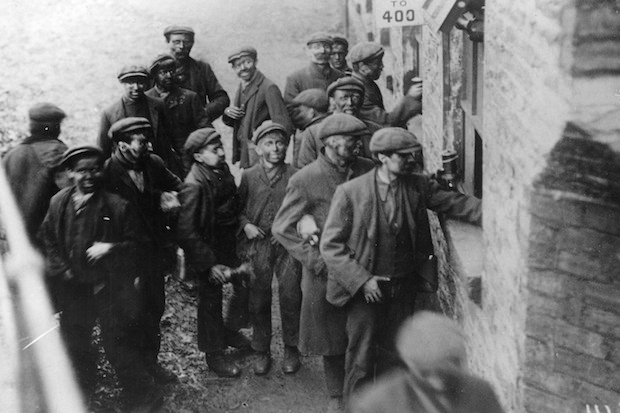We had a Bulgarian chap do up our house. Lovely guy, worked all day and never wanted a break, and I didn’t have to drop my aitches or pretend to like football around him. Actually he turned out to be Polish but after weeks of me asking questions about Bulgaria he presumably felt too embarrassed and just played along with it.
But there are many Bulgarians working in north London, and Birmingham, and they tend to be quite skilled, there being restrictions on who can work here. Naturally as those restrictions are removed, and as the quantity of immigration goes up, the quality goes down.
MigrationWatch claim that net migration from Romanian and Bulgaria will be 50,000 every year for the next five years, and the group were pretty accurate in predicting the 2004 A8 influx. Since then things have changed a bit and fewer jobs are available, and lots of those eager Polish workers can now be found hanging around the park, drinking Lech and presumably too ashamed to go back.
The economic arguments for opening yet another border now seem pretty thin, but as I’ve always said, the economic question about immigration involves pretty marginal costs or benefits; the real debate is social and emotional.
And although Labour has been rightly criticised for its hypocrisy, the open borders ideology is not necessarily a leftie thing; it tends to be libertarian and centrist, and attracts quite a few Tories, despite it being the sort of abstract idea Burke hated.
It’s also elitist, in that open borders can be felt most at the top and bottom of society: the best schools and the best neighbourhoods tend to be those with a fairly low proportion of white Britons; but so do the worst. Diversity is one of the reasons why immigration in the US is making the country more Latin American in its inequality levels.
And without getting too Owen Jones, I suspect that one of the reasons why some Tories are keen on Bulgarian workers is that they’ve developed a dislike for the British working class, and without the mindset that allowed us to make so many working-class people redundant in the 1980s this new upheaval would not be possible.
But it all seems rather short-sighted. Recruiting highly-qualified workers with specific skills or talents will almost certainly benefit the economy, although it does have the secondary effect of allowing us to ignore structural and educational weaknesses at home. But an open door that allows access to people who may or may not be more skilled or intelligent than the population at large will not by itself improve the economy, only expand it into a bubble. And highly-motivated but low-skilled foreign workers will not necessarily produce highly-motivated children, who will instead have the same outlook and expectations as other British-born people, an aspect almost routinely ignored.
In fact one of Britain’s big problems is that it loses too many highly-educated natives, more than it has attracted from overseas; much of that drain has to do with Britain’s relative unattractiveness as a place to bring up children, something that a 70 million population will probably not improve.







Comments